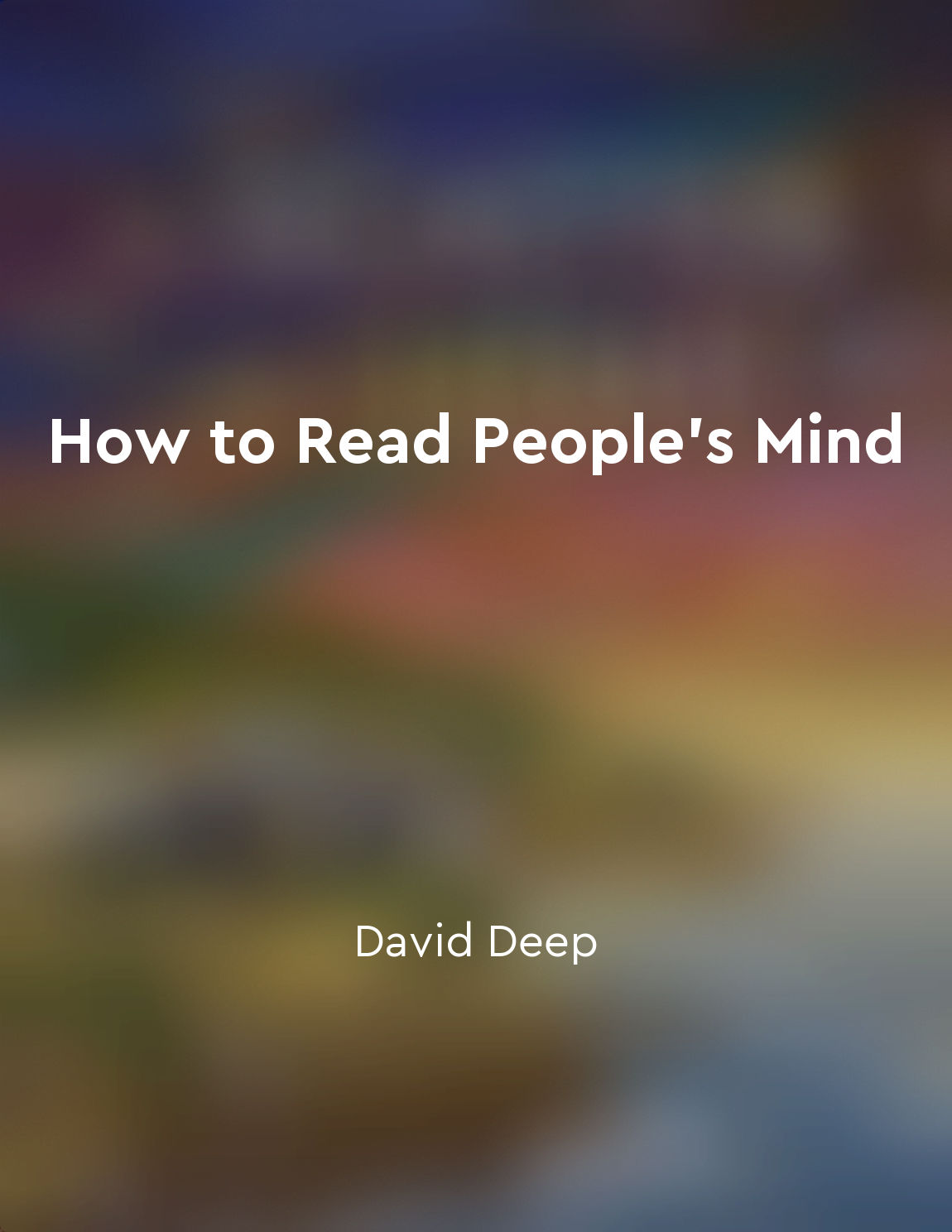Audio available in app
Recognizing emotions in oneself and others is a skill that can be developed from "summary" of Emotional Intelligence by Judy Dyer
Understanding and identifying emotions, both in ourselves and in others, is a crucial skill that can be honed and developed over time. It is not a fixed ability that we are born with, but rather a skill that can be improved through practice and mindfulness. By being aware of our own emotions and the emotions of those around us, we can better navigate social interactions and relationships. This awareness allows us to respond appropriately to different emotional cues and signals, leading to more effective communication and stronger connections with others. Developing this skill requires self-reflection and introspection. It involves paying close attention to our own emotions and thought processes, as well as being observant of the emotions expressed by others through their words, tone of voice, and body language. Practicing empathy is also key to recognizing emotions in others. Empathy involves putting yourself in someone else's shoes and trying to understand their perspective and emotions. This ability to empathize allows us to connect with others on a deeper level and respond to their emotions in a compassionate and supportive manner. Furthermore, developing emotional intelligence involves managing and regulating our own emotions. By understanding our own emotional triggers and reactions, we can learn to control our impulses and make more rational decisions in challenging situations. This self-regulation is essential for maintaining healthy relationships and managing conflicts effectively.- Recognizing emotions in oneself and others is a skill that can be cultivated through self-awareness, empathy, and self-regulation. It is a continuous process of learning and growth that can lead to improved communication, stronger relationships, and greater emotional well-being.
Similar Posts

Practique el autocuidado para mantenerse equilibrado
Autocuidado significa prestar atención a nuestras propias necesidades físicas, mentales, emocionales y espirituales. Es fundame...
Avoid distractions when engaging in communication
When engaging in communication, it is essential to maintain focus and avoid distractions. Distractions can disrupt the flow of ...

Eye movements can reveal a person's true intentions
When it comes to deciphering someone's true intentions, the eyes can be a window into the soul. A person's eye movements can pr...
Addressing emotional needs is essential in education
In the realm of education, it is imperative to recognize the significance of emotional needs in the learning process. When emot...
Setting clear goals is crucial for effective communication
To communicate effectively, it is essential to have a clear understanding of the goals you want to achieve through your communi...

Persuasion methods
Persuasion methods are essential tools in the arsenal of a dark psychologist. These methods are carefully crafted to manipulate...
Jealousy can highlight areas where we feel insecure or lacking
Jealousy is often viewed as a negative emotion, something to be avoided or denied. However, when we look more closely at jealou...
Celebrate small victories along the way
As we journey towards our goals, it is important to acknowledge and appreciate the small victories that we achieve along the wa...

The fear of failure can paralyze individuals and hinder personal growth
The fear of failure has a powerful grip on individuals, causing them to hesitate in their actions and decisions. This fear can ...
Let go of the need to control outcomes
When we are too focused on controlling outcomes, we are setting ourselves up for disappointment and frustration. We can become ...

